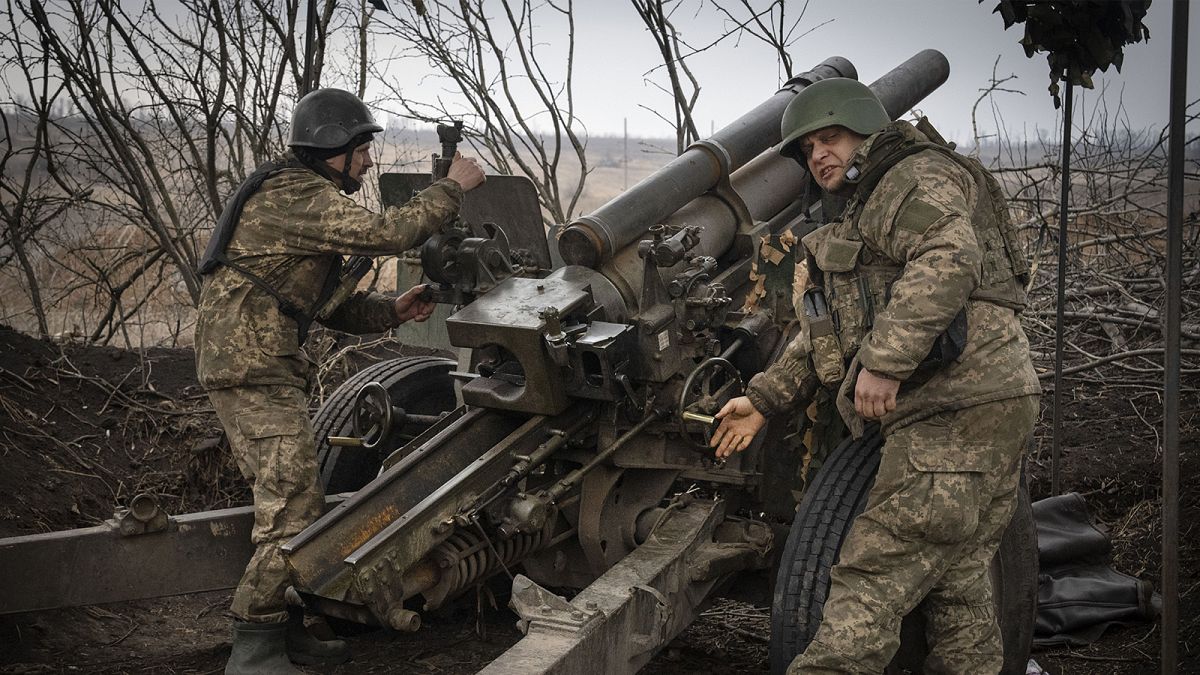NATO allies are gathering in Washington, DC, to mark the alliance’s 75th anniversary. Fresh announcements on further support for Ukraine are meant to show Moscow that no one is giving up on Kyiv.
Nato allies are seeking to drive home to Moscow that support for Ukraine is permanent, and Russian President Vladimir Putin is “dead wrong” to think he’ll outlast it.
Leaders from the 32 NATO nations are in Washington DC to mark the 75th anniversary of the alliance, where new announcements on air defence for Ukraine, including Patriot missiles, are expected.
But the summit is by no means a turning point for Ukraine in joining the alliance — and an invitation for Kyiv will not be forthcoming.
A pledge of €40 billion in military contributions for next year and the construction of a training and security assistance mission for Ukrainian forces will also be made.
All designed to “institutionalise” or build a bridge for Ukraine to eventually join when the “moment is right,” said NATO sources.
The newly created initiative, tentatively dubbed NSATU — NATO Security Assistance and Training for Ukraine, will become the alliance’s main forum for training and coordinating arms deliveries.
It will be based in Germany and led by a three-star general with over 700 staff.
Ukrainian President Volodymyr Zelenskyy will be in DC, holding several bilateral meetings as well as hosting a special event with US President Joe Biden for allies and non-NATO partners who have signed bilateral security agreements with Ukraine.
Michael Carpenter, Senior Director for Europe at the US National Security Council, told journalists that alongside planned announcements of new military contributions for Ukraine, the alliance will consolidate support for the long term.
We’ll be sending “a strong signal to Putin that if he thinks he can outlast the coalition of countries supporting Ukraine, he’s dead wrong”, said Carpenter.
“Allies will set up a new NATO military command in Germany that will leverage NATO’s institutional strengths to coordinate training and equipping, and help Ukraine develop future force,” Carpenter added.
Russia’s strikes ‘horrific, tragic, senseless’
The need to institutionalise support for Ukraine aims to provide predictable and stable military equipment and avoid future shortfalls, which have proven disastrous on the battlefield in recent months.
It is also a plan devised by outgoing Secretary General Jens Stoltenberg to try to guarantee support for Ukraine remains an inextricable part of NATO’s priorities and functions, particularly in the event of Donald Trump or other governments hostile to pro-Ukraine efforts coming to power.
While there is no consensus about when or how Ukraine might eventually join, several countries, including the US, are eager to ensure that the alliance conveys the intention that Ukraine is on an ‘irreversible’ path to membership.
Indeed, there will be “no proper invitation for membership; we are instead putting together deliverables for a bridge to membership,” a NATO source told Euronews.
“We have to say something new; we have to try to find the right words to give something more than last year, so it doesn’t change the fact that we are committed, and we will, when time allows, invite Ukraine to join,” said another source from a NATO state.
Carpenter said the language at the summit’s conclusion will recognise Ukraine’s ongoing reform efforts and demonstrate allied support for Ukraine on its path to NATO membership.
The summit takes place following a Russian missile strike on a children’s hospital in Kyiv on Monday.
The US — which is chairing the summit — has called for a war crimes investigation into the attack as images of nurses, doctors, and parents cradling children suffering from cancer or surgical ailments emerged.
NATO sources believe this was a deliberate message ahead of the summit, as Putin frequently tries to overshadow international events with provocative displays of “strength”.
Scenes of utter desperation emerged from the Ohmatdyt Hospital in the Ukrainian capital, where at least two people were killed and many more injured.
“You can use any adjectives to describe an attack on a children’s hospital. From a human point of view it’s horrific, it’s tragic, it’s senseless and needs to be seriously investigated,” said Carpenter.

